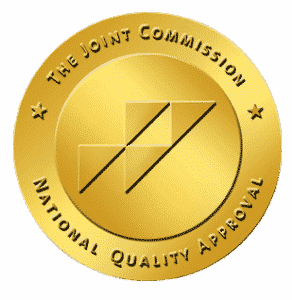Addiction is a multifaceted condition that profoundly impacts individuals, families, and communities. While environmental and behavioral factors play roles in addiction development, recent research has shed light on the crucial influence of genetics in this process. Understanding the relationship between genetics and addiction is vital for developing more effective prevention and treatment strategies, as well as reducing the stigma surrounding addiction.
Rise in Malibu is an addiction treatment facility designed to help break the cycle. You do not need to struggle with addiction like those before you. Through holistic inpatient addiction treatment, clients at Rise in Malibu have access to state-of-the-art treatment and around-the-clock care as they tackle the struggles related to addiction.
Rise in Malibu is a luxury drug rehab in Malibu that offers comprehensive addiction treatment services. Contact our admissions team today to learn more.
Understanding Genes Role in Addiction; Hereditary Addiction
Addiction genes or genetic variants are DNA sequences that can affect an individual’s vulnerability to addiction. These genes have an impact on aspects of addiction, such as the likelihood of developing a substance use disorder, the severity of addiction symptoms experienced by an individual, and their response to treatment approaches. Although multiple genes contribute to addiction susceptibility, particular emphasis has been placed on those associated with the brain’s reward pathway—the dopamine system—due to its role in addictive behaviors.
The influence of variations in dopamine receptor genes like DRD2 and DRD4 on addiction risk has been well documented. Research has also shown that hereditary addiction and the presence of addiction genes can increase vulnerability to addiction in younger generations. It is crucial to understand these factors as they play a significant role in identifying individuals at risk and implementing targeted strategies for prevention and intervention.
The Impact of Genetics on Addiction
Genetics have an impact on addiction, affecting not only an individual’s susceptibility to addiction but also the progression and outcomes of the disorder. Approximately 40-60% of a person’s vulnerability to addiction can be attributed to addiction genes and factors underscoring their importance in shaping addiction risk. Moreover, genetic variations can influence how individuals respond to substances like alcohol, opioids, or nicotine, which ultimately impacts their chances of developing dependence and the severity of their addiction.
Additionally, genetics can also contribute to the risk of mental health disorders such as depression, anxiety, or ADHD, which frequently accompany addiction. By gaining an understanding of the impact of genetics on addiction, healthcare professionals can tailor interventions that address each individual’s unique genetic profile, leading to more personalized and effective treatment approaches.
The influence of genetics on addiction is well established, with specific gene variants playing a role. These gene variants affect the brain’s reward and pleasure pathways, altering how dopamine, a neurotransmitter responsible for pleasure and reinforcement, is processed. Consequently, individuals with these variations may have different responses to addictive substances. Additionally, variations in genes related to stress response, impulse control, and decision-making can increase susceptibility to addiction.
Recognizing these genetic risk factors can help identify people at risk of addiction and enable early intervention and targeted prevention strategies. By addressing these vulnerabilities, we can reduce the impact of genetic risk factors and bolster resilience against addiction.
It’s important to note that while genetics are significant in addiction development, environmental factors also play a role in how genetic predisposition manifests. Factors like childhood trauma, exposure to substance use, socioeconomic conditions, and peer influences interact with vulnerabilities to determine an individual’s risk of developing addiction. Moreover, epigenetic mechanisms come into play by regulating gene expression without altering the DNA sequence itself; they mediate the influence of factors on gene function.
Understanding the interplay between genetics and the environment is crucial when it comes to addressing addiction risk comprehensively. By creating nurturing environments promoting resilience and mitigating adverse environmental influences, we can effectively influence how genetic predispositions are expressed, thus reducing the likelihood of developing addiction.Rise in Malibu is a Malibu inpatient addiction treatment program that offers 24/7 care for individuals embarking on or restarting their recovery journey. Our intensive treatment programs enable clients to focus on improving their overall well-being during recovery. With our team and serene surroundings, we promote holistic wellness while supporting individuals at Rise in Malibu.







